Welcome to trimester three of the academic year 2016-2017
مرحباً بكم في الفصل الدراسي الثالث للسنة الأكاديمية ٢٠١٦-٢٠١٧
مرحباً بكم في الفصل الدراسي الثالث للسنة الأكاديمية ٢٠١٦-٢٠١٧
*This year we translated the course offer to make it more accessible to a more diverse audience. Please note that currently most courses are held in English due to text availability. The discussions are mostly bilingual due to the language diversity in the class (between English only speakers, and Arabic and English speakers), and considering the relationship between familiarity of the language, and individual expression, in a learning process based on mutual exploration.
هذه السنة، قمنا بترجمة التوصيفات لتكون متاحة لجمهور اكثر تنوعاً. برجاء العلم ان معظم الدورات مازالت تقام في الوقت الحالي باللغة الانجليزية نظراً لتوافر لتوافر مواد القراءة باللغة الانجليزية. و مع ذلك المناقشات تدار على أساس إزدواجية اللغة، نظراً لتعدد اللغات الموجودة في الفصل الواحد، و مع الاخذ في الاعتبار العلاقة الترابطية بين الإعتياد اللغوي، و التعبير الفردي في خلال عملية تعليمية مبنية على الاستكشاف المتبادل.
overview
scheduling and pricing
- Thematic courses are open to visiting students who are not enrolled in CILAS' yearlong study programme in the liberal arts.
- In trimester two of the academic year 2016-2017, CILAS is offering eleven thematic courses listed below.
- Thematic courses are of a duration of ten weeks with two and half class hours per week.
- Thematic courses begin the week of April 9th and end the week of June 15th.
- For further inquiry about the thematic course offer, do not hesitate to contact us.
scheduling and pricing
- Classes are scheduled both in the morning from 10am to 12:30pm and in the evening from 5:30pm to 8pm. Students are asked to commit to one of both Tracks depending on their time availability.
- Morning and evening classes discuss the same topic.
- Participants are required to attend 80% of scheduled classes.
- Thematic courses are chargeable at 1500 L.E.
- Should you have course-specific questions, please do not hesitate to contact us.
رؤية عامة
الدورات النوعية مفتوحة للطلاب الزائرين الغير مسجلين في البرنامج السنوي لسيلاس في الفنون و العلوم الحرة
في الترم الثاني للسنة الأكاديمية ٢٠١٦-٢٠١٧ سيلاس تقدم ١١ كورس
الدورات النوعية مدتها عشرة اسابيع و مدة الحصة الاسبوعية ساعتين و نصف
الدورات النوعية تبدأ في اسبوع ٩ ابريل و تنتهي في اسبوع ١٥ يونيو
لمزيد من المعلومات، تواصلوا معنا هنا
الجدول و الاسعار
يقام الفصل الصباحي من ١٠ صباحاً إلى ١٢:٣٠ ظهراً و المسائي من ٥:٣٠ مساءاً إلي ٨ مساءاً
الفصول الصباحية و المسائية تناقش المواضيع نفسها
المصاريف المطلوبة للمساق الواحد ١٥٠٠ جنيه
80% مطلوب من المشاركين حضور بنسبة
لمزيد من المعلومات الخاصة بدورة محددة، تواصلوا معنا هنا
*Available on this page is an overview of each course, to read full descriptions of each course, or apply, please click on continue reading at the bottom of each content block.
متاح على هذه الصفحة رؤية عامة لكل مساق، يمكنكم قراءة التوصيفات الكاملة من خلال رابط المزيد
Humanities
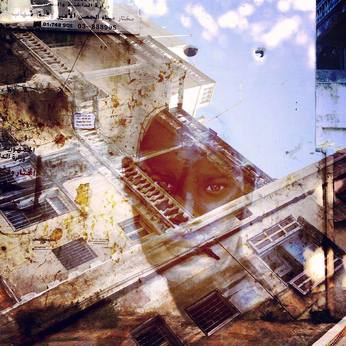
Philosophy of Education: On Becoming a Humanistic Educator
Offered by Riham AZIZ
On Monday mornings from 10:00 am to 12:30 pm and evenings from 5:30 to 8:00 pm
The moment that we are born, we are classified as humans, yet we rarely find a simple answer to the never asked questions: What is to be a human? Are there any traits that distinguish us among all other creatures? Are they innate or learnt?
"On Becoming a Human: On Becoming a Humanistic Educator" is a course that addresses the above mentioned questions. The course follows inquiry based approach in order to avoid providing participants with ready- tailored answers. Each participant is responsible to start a journey of unlearning, relearning and knowing who s/he is. In order to reach that, participants will be asked dig deeply for their own definition of truth via asking as many questions as they can.
continue reading
Offered by Riham AZIZ
On Monday mornings from 10:00 am to 12:30 pm and evenings from 5:30 to 8:00 pm
The moment that we are born, we are classified as humans, yet we rarely find a simple answer to the never asked questions: What is to be a human? Are there any traits that distinguish us among all other creatures? Are they innate or learnt?
"On Becoming a Human: On Becoming a Humanistic Educator" is a course that addresses the above mentioned questions. The course follows inquiry based approach in order to avoid providing participants with ready- tailored answers. Each participant is responsible to start a journey of unlearning, relearning and knowing who s/he is. In order to reach that, participants will be asked dig deeply for their own definition of truth via asking as many questions as they can.
continue reading
أن تصبح إنسانًا: حول طبيعة المعلم اﻹنساني
مقدم من ريهام عزيز
أيام الإثنين صباحاً من العاشرة إلى الثانية وعشر ظهراً و مساءاً من الخامسة والنصف إلى الثامنة
نحن نولد و يتم تصنيفنا أننا بشر، لكن هل نحمل سمات الإنسانية؟ هل للغنسانية سمات تميزنا عما يحيط بنا من كائنات حية. هل نحن الكائنات الأعلي في تراتبية سلم الكائنات، هل تفوقنا المزعوم هذا يرجع إلى امتلاكنا المعرفة الحقة بحقيقة جوهرنا الإنساني؟
يسعي مساق "أن تصبح إنساناً: أن تصبح مربياً إنسانياً" إلي تسليط الضوء في البدء عن الذات الإنسانيةن كيف يمكنك اكتشاف ذاتك كإنسان، كيف يمكنك التعرّف علي كل ثقوب روحك السوداء، كيف يمكنك أن تمنح نفسك إعادة الولادة تارة أخرى وأنت تحمل وعياً لما تريده حقاً. يطرح المساق عدداّ من التساؤلات عن ذاتنا الحقيقية، عن ذواتنا المزيفة أو ما نظن انها كذلك. يعيد المساق التأمل
في كل ما لا تمنحه لنا الحياة من وقت او جهد لنفهم لمذا نعاني اليوم،و لما نشعر أننا بالرغم من كل شيء محيط بنا و يبدو أنه يجعلنا أقرب، إلا أننا في واقع الأمر نشعر بعزلة شديد، نشعر باغتراب
يلازمنا باختلاف الأعمار و الأجناس.
المزيد
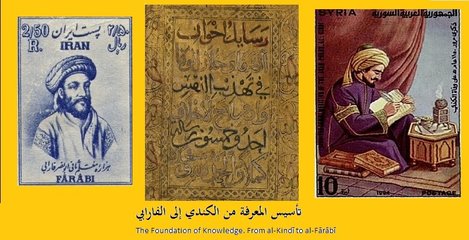
The foundation of knowledge: From al-Kindī to al-Fārābī.
Offered by Guillaume DE VAULX
On Sunday mornings from 10:00 am to 12:30 pm and evenings from 5:30 to 8:00 pm
What is the basis of knowledge? What is our first knowledge? What is the science we have to begin with and proceed to all the sciences?
The question of origin (where does it come from?) and foundation (what is it built on?) is a classical question coming from Meno(Plato’s dialogue) which had great developments in classical Arabic philosophy with a religious issue: what comes first, science or revelation?, an historical issue: how to transfer science from a learned nation to an ignorant one?, an epistemological issue: how to discover what never appears in front of our eyes? a sociological issue: everyone pretends to be a scholar, but who is a real one?, and pedagogical issue: how can we help pupils to access to a knowledge they ignore?
continue reading
Offered by Guillaume DE VAULX
On Sunday mornings from 10:00 am to 12:30 pm and evenings from 5:30 to 8:00 pm
What is the basis of knowledge? What is our first knowledge? What is the science we have to begin with and proceed to all the sciences?
The question of origin (where does it come from?) and foundation (what is it built on?) is a classical question coming from Meno(Plato’s dialogue) which had great developments in classical Arabic philosophy with a religious issue: what comes first, science or revelation?, an historical issue: how to transfer science from a learned nation to an ignorant one?, an epistemological issue: how to discover what never appears in front of our eyes? a sociological issue: everyone pretends to be a scholar, but who is a real one?, and pedagogical issue: how can we help pupils to access to a knowledge they ignore?
continue reading
أسس المعرفة: من الكندي إلى الفارابي
ما هي أسس المعرفة؟ وما هي معارفنا اﻷولى؟ وما هو العلم الذي نبدأ به ونلج به إلى كل العلوم؟
السؤال حول اﻷصول (من أين تأتي المعرفة؟) واﻷسس (على ماذا تبنى؟) هو سؤال قديم من مينو (في محاورات أفلاطون) التي تطورت تطورًا كبيرًا في الفلسفة العربية الكلاسيكية في مسألة دينية: ما اﻷول: العلم أم الوحي؟ ومسألة تاريخية: كيف ننقل العلم من أمة متعلمة إلى أمة جاهلة؟ ومسألة معرفية: كيف نكتشف ما ﻻ يظهر أمام أعيننا؟ ومسألة اجتماعية: كل الناس يدعون أنهم علماء، لكن من هو العالم الحقيقي؟ ومسألة تربوية: كيف نساعد طلابنا للوصول إلى معرفة يجهلونها؟
المزيد
ما هي أسس المعرفة؟ وما هي معارفنا اﻷولى؟ وما هو العلم الذي نبدأ به ونلج به إلى كل العلوم؟
السؤال حول اﻷصول (من أين تأتي المعرفة؟) واﻷسس (على ماذا تبنى؟) هو سؤال قديم من مينو (في محاورات أفلاطون) التي تطورت تطورًا كبيرًا في الفلسفة العربية الكلاسيكية في مسألة دينية: ما اﻷول: العلم أم الوحي؟ ومسألة تاريخية: كيف ننقل العلم من أمة متعلمة إلى أمة جاهلة؟ ومسألة معرفية: كيف نكتشف ما ﻻ يظهر أمام أعيننا؟ ومسألة اجتماعية: كل الناس يدعون أنهم علماء، لكن من هو العالم الحقيقي؟ ومسألة تربوية: كيف نساعد طلابنا للوصول إلى معرفة يجهلونها؟
المزيد
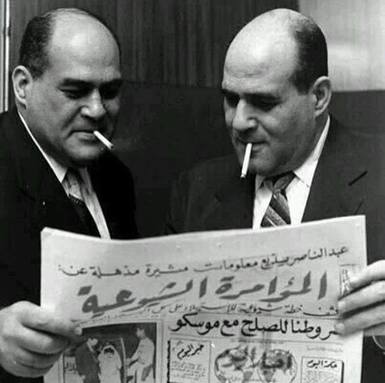
Visions of the Arab : Between Orientalism & Orientalism in Reverse
Offered by Alaa BADR
On Tuesday mornings from 10:00 am to 12:30 pm and evenings from 5:30 to 8:00 pm
The Arab identity is elusive at best and disfigured at worst. what is an Arab? What constitutes his identity? It is Pan-Arabism? Islamism? The Arabic language itself? These are all questions Arab thinkers have asked and answers vary, ranging from the most religious to the completely secular.
It seems that much of the political and social turmoil is grounded in the confusion which surrounds the Arab identity. With a colonial period spanning decades, most Arab thought production is a reaction to the colonizer, “an other,” rather than an endogenous reflection on their own “Arabity.” As such, the Colonial period was a strong disruptive force in this process of self-reflection.
continue reading
Offered by Alaa BADR
On Tuesday mornings from 10:00 am to 12:30 pm and evenings from 5:30 to 8:00 pm
The Arab identity is elusive at best and disfigured at worst. what is an Arab? What constitutes his identity? It is Pan-Arabism? Islamism? The Arabic language itself? These are all questions Arab thinkers have asked and answers vary, ranging from the most religious to the completely secular.
It seems that much of the political and social turmoil is grounded in the confusion which surrounds the Arab identity. With a colonial period spanning decades, most Arab thought production is a reaction to the colonizer, “an other,” rather than an endogenous reflection on their own “Arabity.” As such, the Colonial period was a strong disruptive force in this process of self-reflection.
continue reading
رؤى العرب: بين اﻻستشراق والاستشراق معكوسًا
مقدم من آلاء بدر
أيام الثلاثاء صباحا من العاشرة إلى الثانية وعشر ظهراً و مساءاً من الخامسة والنصف إلى الثامنة
الهوية العربية عصية على الفهم في أفضل اﻷحوال ومشوهة في أسوأها. من العرب؟ ما الذي يؤسس هويتهم؟ هل هي العروبة أم اﻹسلامية أم اللغة العربية نفسها؟ كل هذه اﻷسئلة سألها المفكرون العرب وأجابوا عليها إجابات متنوعة ومتراوحة بين الدينية المتشددة والعلمانية الشاملة.
ويبدو أن كثير من هذا اﻹضطراب السياسي واﻹجتماعي متأصل في اﻹلتباس المحيط بالهوية العربية. أكثر الفكر العربي هو باﻷحرى رد فعل على "اﻵخر" المستعمر عن كونه إسقاط داخلي لعروبيتهم الخاصة على امتداد عقود اﻹستعمار. كما مثلت فترة اﻹستعمار مرحلة شديدة التخريب في عملية اﻹسقاط الذاتي تلك.
المزيد
مقدم من آلاء بدر
أيام الثلاثاء صباحا من العاشرة إلى الثانية وعشر ظهراً و مساءاً من الخامسة والنصف إلى الثامنة
الهوية العربية عصية على الفهم في أفضل اﻷحوال ومشوهة في أسوأها. من العرب؟ ما الذي يؤسس هويتهم؟ هل هي العروبة أم اﻹسلامية أم اللغة العربية نفسها؟ كل هذه اﻷسئلة سألها المفكرون العرب وأجابوا عليها إجابات متنوعة ومتراوحة بين الدينية المتشددة والعلمانية الشاملة.
ويبدو أن كثير من هذا اﻹضطراب السياسي واﻹجتماعي متأصل في اﻹلتباس المحيط بالهوية العربية. أكثر الفكر العربي هو باﻷحرى رد فعل على "اﻵخر" المستعمر عن كونه إسقاط داخلي لعروبيتهم الخاصة على امتداد عقود اﻹستعمار. كما مثلت فترة اﻹستعمار مرحلة شديدة التخريب في عملية اﻹسقاط الذاتي تلك.
المزيد
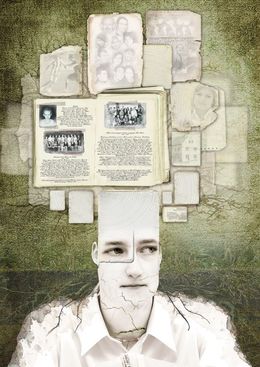
Past, Memory(ies) and Identity(ies)
Offered by Mayada MADBOULY and Mohamed YEHIA
On Sunday mornings from 10:00 am to 12:30 pm and evenings from 5:30 to 8:00 pm
The outbreak digital era and the- so-called –Uprising in Egypt pushed many scholars to question several concepts such as History, memory, nationalism and identity to name a few. The availability of the information on the internet and the multiplicity of research resources proposed other narrations and other versions than the official narration. In this sense, this course will highlight an academic field less studied in Egypt: the collective memory and its formation. This course is not interested in the historiography as much as it aims to enhance the storytelling of historical events that form the collective memory of each group and how the past is politically used through official discourses, songs, movies, etc.
continue reading
Offered by Mayada MADBOULY and Mohamed YEHIA
On Sunday mornings from 10:00 am to 12:30 pm and evenings from 5:30 to 8:00 pm
The outbreak digital era and the- so-called –Uprising in Egypt pushed many scholars to question several concepts such as History, memory, nationalism and identity to name a few. The availability of the information on the internet and the multiplicity of research resources proposed other narrations and other versions than the official narration. In this sense, this course will highlight an academic field less studied in Egypt: the collective memory and its formation. This course is not interested in the historiography as much as it aims to enhance the storytelling of historical events that form the collective memory of each group and how the past is politically used through official discourses, songs, movies, etc.
continue reading
الماضي، الذاكرة والهوية
مقدم من ميادة مدبولي و محمد يحيى
أيام الأحد صباحا من العاشرة إلى الثانية وعشر ظهراً و مساءاً من الخامسة والنصف إلى الثامنة
انفراجة العصر الرقمى و الحراك الذى عاشته مصر دفع العديد من الأكاديميين لإعادة النظر فى العديد المفاهيم مثل التاريخ، و الذاكرة، و القومية، والهوية, توافر المعلومات على شبكات النت و تعدد مصادر الأبحاث ساعدت على الإشارة إلى سرديات أخرى، مختلفة عن تلك التي تُروجها الأصوات الرسمية. على هذا النهج، هذا المساق سيسلط الضوء على حقل دراسى مهضوم حقه فى مصر، ألا و هو "الذاكرة الجماعية و تكوينها". هذا المساق لا يركز على علم كتابة التاريخ بقدر ما هو يسعى إلى إرثاء ثقافة حكى الأحداث التاريخية التي تشكل الذاكرة الجماعية لمختلف الطوائف، كما نتطرق إلى كيفية أستغلال الماضى بشكل سياسى من خلال الخطابات الرسمية، و الأغانى، و الأفلام، و الخ…
المزيد
مقدم من ميادة مدبولي و محمد يحيى
أيام الأحد صباحا من العاشرة إلى الثانية وعشر ظهراً و مساءاً من الخامسة والنصف إلى الثامنة
انفراجة العصر الرقمى و الحراك الذى عاشته مصر دفع العديد من الأكاديميين لإعادة النظر فى العديد المفاهيم مثل التاريخ، و الذاكرة، و القومية، والهوية, توافر المعلومات على شبكات النت و تعدد مصادر الأبحاث ساعدت على الإشارة إلى سرديات أخرى، مختلفة عن تلك التي تُروجها الأصوات الرسمية. على هذا النهج، هذا المساق سيسلط الضوء على حقل دراسى مهضوم حقه فى مصر، ألا و هو "الذاكرة الجماعية و تكوينها". هذا المساق لا يركز على علم كتابة التاريخ بقدر ما هو يسعى إلى إرثاء ثقافة حكى الأحداث التاريخية التي تشكل الذاكرة الجماعية لمختلف الطوائف، كما نتطرق إلى كيفية أستغلال الماضى بشكل سياسى من خلال الخطابات الرسمية، و الأغانى، و الأفلام، و الخ…
المزيد
Natural Sciences
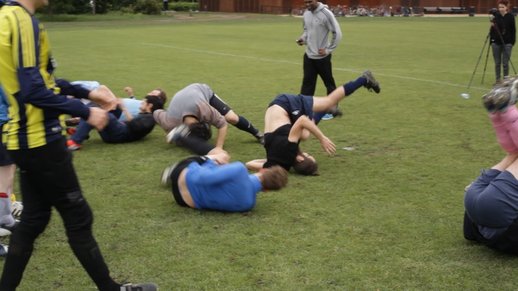
Falling
Offered by Sandra FREUBING
On Wednesday mornings from 10:00 am to 12:30 pm and Tuesday evenings from 5:30 to 8:00 pm
The act of falling is simple. Falling is what happens when you are off balance; it makes your body drop and loose control and often provides amusement for spectators. Defined as a downward movement from a higher to a lower level, to hang down, to drop away, to show disappointment, to lose one’s balance and collapse, to be captured or to decrease, to ‘fall’ conjures a multitude of images and associations.
continue reading
Offered by Sandra FREUBING
On Wednesday mornings from 10:00 am to 12:30 pm and Tuesday evenings from 5:30 to 8:00 pm
The act of falling is simple. Falling is what happens when you are off balance; it makes your body drop and loose control and often provides amusement for spectators. Defined as a downward movement from a higher to a lower level, to hang down, to drop away, to show disappointment, to lose one’s balance and collapse, to be captured or to decrease, to ‘fall’ conjures a multitude of images and associations.
continue reading
السقوط
مقدم من ساندرا فروبنج
أيام الأربعاء صباحا من العاشرة إلى الثانية وعشر ظهراً و أيام الثلاثاء مساءاً من الخامسة والنصف إلى الثامنة
حركة السقوط حركة بسيطة. السقوط هو ما يحدث عندما يفقد الشخص اتزانه؛ هو يُفقد الجسم تحكمه و يجعله آيلاً للوقوع، و كثيراً يرسم البسمة على وجوه المشاهدين. "السقوط" يوحى بالعديد من الصور و الروابط؛ يُفسر كحركة من أعلى إلى أسفل، و كحالة التعليق، و كالتساقط، و أحياناً يأتي بمعنى فقدان التوازن و الانهيار، أو إظهار الخيبة، أو الانحدار. المعاني كثيرة و الكلمة واحدة.
المزيد
مقدم من ساندرا فروبنج
أيام الأربعاء صباحا من العاشرة إلى الثانية وعشر ظهراً و أيام الثلاثاء مساءاً من الخامسة والنصف إلى الثامنة
حركة السقوط حركة بسيطة. السقوط هو ما يحدث عندما يفقد الشخص اتزانه؛ هو يُفقد الجسم تحكمه و يجعله آيلاً للوقوع، و كثيراً يرسم البسمة على وجوه المشاهدين. "السقوط" يوحى بالعديد من الصور و الروابط؛ يُفسر كحركة من أعلى إلى أسفل، و كحالة التعليق، و كالتساقط، و أحياناً يأتي بمعنى فقدان التوازن و الانهيار، أو إظهار الخيبة، أو الانحدار. المعاني كثيرة و الكلمة واحدة.
المزيد
Arts and Culture
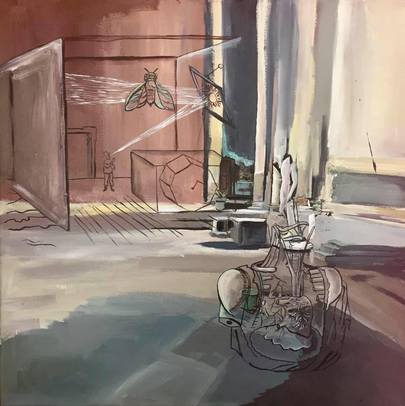
Poetry and Short Prose: Memory That Moves
Offered by Sara EL KAMEL
On Sunday mornings from 10:00 am to 12:30 pm and evenings from 5:30 to 8:00 pm
This course is for passionate writers seeking an opportunity to spend more time on their writing. The course will take the shape of a generative workshop; it will not focus on teaching writing, but rather on establishing a creative environment in which participants can further explore their minds and written work.
In this course, we will be thinking a lot about memory. Taking inspiration from theories of memory and trauma, we will consider how our writing can confront the erasure of violent or uncomfortable pasts, and shift our perception of the present. Drawing on practices of performance and activism, we will explore ways to activate our ideas and bring them off the page.
We will write every week. With the help of a series of writing prompts, we will be making new poems and short texts, in and out of class, and we will routinely share and discuss our work.
continue reading
Offered by Sara EL KAMEL
On Sunday mornings from 10:00 am to 12:30 pm and evenings from 5:30 to 8:00 pm
This course is for passionate writers seeking an opportunity to spend more time on their writing. The course will take the shape of a generative workshop; it will not focus on teaching writing, but rather on establishing a creative environment in which participants can further explore their minds and written work.
In this course, we will be thinking a lot about memory. Taking inspiration from theories of memory and trauma, we will consider how our writing can confront the erasure of violent or uncomfortable pasts, and shift our perception of the present. Drawing on practices of performance and activism, we will explore ways to activate our ideas and bring them off the page.
We will write every week. With the help of a series of writing prompts, we will be making new poems and short texts, in and out of class, and we will routinely share and discuss our work.
continue reading
الشعر والنثر القصير: الذاكرة المُـ(ـتـ)ـحركة
مقدم من سارة الكامل
أيام الأحد صباحاً من العاشرة حتى الثانية عشر و نصف
و مساءاً من الخامسة و النصف حتى الثامنة
هذا المساق للكتاب الشغوفين بالكتابة الذين يبحثون عن فرصة لقضاء وقت أطول مع كتابتهم، وسوف يتخذ شكل الورشة الإبداعية، لكن لن تركز على تعليم الكتابة، بل على تأسيس بيئة إبداعية حيث يمكن للمشاركين أن يستكشفوا عقولهم والعمل المكتوب أكثر.
في هذا المساق، سنفكر في الذاكرة كثيرًا مستلهمين نظريات المتعلقة بالذاكرة والصدمة النفسية، كما سنتباحث حول كيف يمكن لكتابتنا أن تواجه ماضٍ مزعج، وتغير وجهة نظرنا للحاضر، وسنتكشف طرقًا لتنشيط أفكارنا واستخراجها على اﻷوراق اعتمادًا على ممارسات اﻷدائية والنشاط السياسي.
المزيد
مقدم من سارة الكامل
أيام الأحد صباحاً من العاشرة حتى الثانية عشر و نصف
و مساءاً من الخامسة و النصف حتى الثامنة
هذا المساق للكتاب الشغوفين بالكتابة الذين يبحثون عن فرصة لقضاء وقت أطول مع كتابتهم، وسوف يتخذ شكل الورشة الإبداعية، لكن لن تركز على تعليم الكتابة، بل على تأسيس بيئة إبداعية حيث يمكن للمشاركين أن يستكشفوا عقولهم والعمل المكتوب أكثر.
في هذا المساق، سنفكر في الذاكرة كثيرًا مستلهمين نظريات المتعلقة بالذاكرة والصدمة النفسية، كما سنتباحث حول كيف يمكن لكتابتنا أن تواجه ماضٍ مزعج، وتغير وجهة نظرنا للحاضر، وسنتكشف طرقًا لتنشيط أفكارنا واستخراجها على اﻷوراق اعتمادًا على ممارسات اﻷدائية والنشاط السياسي.
المزيد
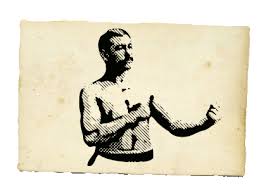
On the art of manliness
Offered by Karim-Yassin GOESSINGER
On Monday mornings from 10:00 am to 12:30 pm and evenings from 5:30 to 8:00 pm
Manliness or masculinity -- especially in the Middle East -- remains understudied. Masculinity is fluid and hence difficult to describe and comprehend. Few have inquired into how men groom themselves, feel about being single, getting old, sick, bald or overweight. What is the relationship between embodiment and masculinity? How do men negotiate different social expectations that aim to define their bodies and masculine selves? What do men and women think constitutes “a real men”? Our focus in this course will be on performance, identity and representation of manliness.
continue reading
Offered by Karim-Yassin GOESSINGER
On Monday mornings from 10:00 am to 12:30 pm and evenings from 5:30 to 8:00 pm
Manliness or masculinity -- especially in the Middle East -- remains understudied. Masculinity is fluid and hence difficult to describe and comprehend. Few have inquired into how men groom themselves, feel about being single, getting old, sick, bald or overweight. What is the relationship between embodiment and masculinity? How do men negotiate different social expectations that aim to define their bodies and masculine selves? What do men and women think constitutes “a real men”? Our focus in this course will be on performance, identity and representation of manliness.
continue reading
حول فن الرجولة
مقدم من كريم جوسينجر
أيام الإثنين صباحاً من العاشرة حتى الثانية عشر و نصف
و مساءاً من الخامسة و النصف حتى الثامنة
لا يزال مفهوم الرجولة أو الذكورة يخضع للدراسة خاصة في الشرق الأوسط. فهو مفهوم سائل ومن ثم يصعب وصفه واستيعابه. لقد استقصى البعض عن كيفية إعداد الرجال لأنفسهم، كيف يشعرون تجاه كونهم عزاب؟ كيف يختبرون التقدم في السن والمرض والصلع والوزن الزائد؟ وما هي العلاقة بين التجسيد والذكورة؟ كيف يفاوض الرجال التوقعات الاجتماعية التي تهدف إلى وضع تصور محدد لأجسادهم وذواتهم الذكورية؟ ما الذي يعتقده الرجال والنساء في تشكل ما يسمى بالرجل الحقيقي؟ سيكون تركيزنا في هذا المساق على أداء الرجولي وهويتها وتمثيلها؟
المزيد
مقدم من كريم جوسينجر
أيام الإثنين صباحاً من العاشرة حتى الثانية عشر و نصف
و مساءاً من الخامسة و النصف حتى الثامنة
لا يزال مفهوم الرجولة أو الذكورة يخضع للدراسة خاصة في الشرق الأوسط. فهو مفهوم سائل ومن ثم يصعب وصفه واستيعابه. لقد استقصى البعض عن كيفية إعداد الرجال لأنفسهم، كيف يشعرون تجاه كونهم عزاب؟ كيف يختبرون التقدم في السن والمرض والصلع والوزن الزائد؟ وما هي العلاقة بين التجسيد والذكورة؟ كيف يفاوض الرجال التوقعات الاجتماعية التي تهدف إلى وضع تصور محدد لأجسادهم وذواتهم الذكورية؟ ما الذي يعتقده الرجال والنساء في تشكل ما يسمى بالرجل الحقيقي؟ سيكون تركيزنا في هذا المساق على أداء الرجولي وهويتها وتمثيلها؟
المزيد
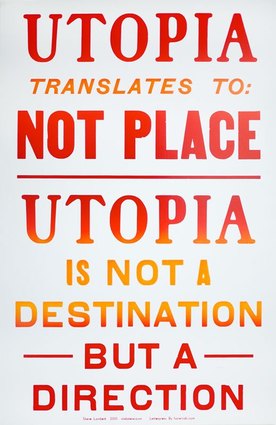
To Stand With the Dreamers: On Utopia
Offered by Ahmed MONGEY
On Thursday mornings from 10:00 am to 12:30 pm and evenings from 5:30 to 8:00 pm
“The most tragic form of loss isn't the loss of security; it's the loss of the capacity to imagine that things could be different.”
Ernst Bloch
This course offers an overview to Utopia and Utopianism. The word Utopia was coined by Thomas Moore in his 1516 novel “Utopia”, to describe a “perfect” ideal city that the novel takes place, and etymologically It means the good place that is no place or the good place that doesn’t exist. This word went to become a literature genre, reflecting good places (utopias) and bad places (dystopia). Utopianism on the other hand can be defined as social dreaming, or the dreams and imaginations of a society or the concept/idea of utopia and its pursuit for the good place.
continue reading
Offered by Ahmed MONGEY
On Thursday mornings from 10:00 am to 12:30 pm and evenings from 5:30 to 8:00 pm
“The most tragic form of loss isn't the loss of security; it's the loss of the capacity to imagine that things could be different.”
Ernst Bloch
This course offers an overview to Utopia and Utopianism. The word Utopia was coined by Thomas Moore in his 1516 novel “Utopia”, to describe a “perfect” ideal city that the novel takes place, and etymologically It means the good place that is no place or the good place that doesn’t exist. This word went to become a literature genre, reflecting good places (utopias) and bad places (dystopia). Utopianism on the other hand can be defined as social dreaming, or the dreams and imaginations of a society or the concept/idea of utopia and its pursuit for the good place.
continue reading
الوقوف مع الحالمون: عن اليوتويبا
مقدم من احمد منجي
أيام الخميس صباحاً من العاشرة حتى الثانية عشر و نصف
و مساءاً من الخامسة و النصف حتى الثامنة
"اكثر الخسائر مأساوية ليس فقدان الأمن، بل هي فقدان القدرة على تخيل أن الأمور يمكن أن تكون مختلفة".
إرنست بلوخ-
يقدم هذا المساق نظرة عامة عن اليوتوبيا واليوتيوبية. يوتوبيا كلمة كان قد صاغها توماس مور في كتابه "يوتوبيا" الصادر عام 1516، لوصف مدينة مثالية تجري فيها احداث الرواية، و اشتقاق الجملة من اليونانية يعني مكان جيد غير موجود. ذهبت هذه الكلمة لتصبح نوع ادبي، يعكس أماكن جيدة (اليوتوبيا) وأماكن سيئة (الديستوبيا). من جهة آخرى يُمكن تعريف اليوتوبية بأنها الحلم الاجتماعي، او الاحلام و الخيال الذي يجمع مجتمع ما، او الفكرة وراء السعي نحو "اليوتوبيا".
المزيد
مقدم من احمد منجي
أيام الخميس صباحاً من العاشرة حتى الثانية عشر و نصف
و مساءاً من الخامسة و النصف حتى الثامنة
"اكثر الخسائر مأساوية ليس فقدان الأمن، بل هي فقدان القدرة على تخيل أن الأمور يمكن أن تكون مختلفة".
إرنست بلوخ-
يقدم هذا المساق نظرة عامة عن اليوتوبيا واليوتيوبية. يوتوبيا كلمة كان قد صاغها توماس مور في كتابه "يوتوبيا" الصادر عام 1516، لوصف مدينة مثالية تجري فيها احداث الرواية، و اشتقاق الجملة من اليونانية يعني مكان جيد غير موجود. ذهبت هذه الكلمة لتصبح نوع ادبي، يعكس أماكن جيدة (اليوتوبيا) وأماكن سيئة (الديستوبيا). من جهة آخرى يُمكن تعريف اليوتوبية بأنها الحلم الاجتماعي، او الاحلام و الخيال الذي يجمع مجتمع ما، او الفكرة وراء السعي نحو "اليوتوبيا".
المزيد
Social Sciences
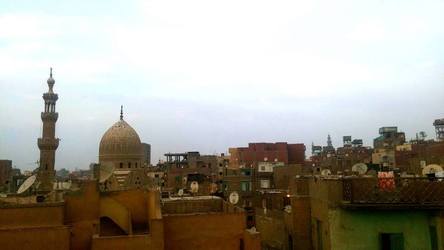
Oral History Theory & Practice: Family, Community and Migration Histories in the Khalifa Neighborhood
Offered by Rahma BAVELAAR
on Thursday mornings from 10:00 am to 12:30 pm and evenings from 5:30 pm to 8:00 pm
Oral history interviewing is an important tool in the historian and anthropologist’s methodological repertoire. Oral historians have played a particularly important role in recovering histories ‘from below’, through collecting the stories of ‘subaltern’ or marginalized communities, nuancing and challenging dominant narratives of the powerful, and documenting the stories of people whose voices are ignored or silenced in the historical archives of nations, public institutions and history textbooks.
In this hands-on course, you will be trained in all the stages of conceptualizing, preparing for and carrying out an oral history project. Our class project - which we will complete in the course of the term - will focus on migration and family histories in the Khalifa neighborhood, the historical quarter beneath the CILAS balconies.
continue reading
Offered by Rahma BAVELAAR
on Thursday mornings from 10:00 am to 12:30 pm and evenings from 5:30 pm to 8:00 pm
Oral history interviewing is an important tool in the historian and anthropologist’s methodological repertoire. Oral historians have played a particularly important role in recovering histories ‘from below’, through collecting the stories of ‘subaltern’ or marginalized communities, nuancing and challenging dominant narratives of the powerful, and documenting the stories of people whose voices are ignored or silenced in the historical archives of nations, public institutions and history textbooks.
In this hands-on course, you will be trained in all the stages of conceptualizing, preparing for and carrying out an oral history project. Our class project - which we will complete in the course of the term - will focus on migration and family histories in the Khalifa neighborhood, the historical quarter beneath the CILAS balconies.
continue reading
التاريخ الشفهي في النظرية والممارسة: العائلة والجماعة الأهلية والتاريخ المهاجر في حي الخليفة
مقدم من رحمة بافلر
أيام الخميس صباحاً من العاشرة حتى الثانية عشر و نصف
و مساءاً من الخامسة و النصف حتى الثامنة
حوارات التاريخ الشفهي هي أداة مهمة في العدة المنهجية للمؤرخ والأنثروبولوجي. لعب المؤرخون الشفاهيون دورًا مهمًا محددًا في إستعادة التواريخ من أسفل، من خلال جمع قصص التابع والجماعات المهمشة، ويتحدون السرديات المهيمنة للقوى الفاعلة ويحددونه، ويوثقون قصص الناس الذين تم تجاهل أصواتهم أو أسكتت في الأرشيفات التاريخية للأمم والمؤسسات العامة وكتب التاريخ الدراسية.
في هذا المساق العملي، سنتدرب في كل مراحل على تكوين المفاهيم والاستعداد لتنفيذ مشروع تاريخ شفهي. مشروع الفصل الدراسي -الذي سيكتمل في أثناء المساق- سيركز على الهجرة وتاريخ العائلات في حي الخليفة الذي يقبع في الجانب التاريخي تحت شرفات معهد القاهرة للدراسات الحرة في الآداب والعلوم
المزيد
مقدم من رحمة بافلر
أيام الخميس صباحاً من العاشرة حتى الثانية عشر و نصف
و مساءاً من الخامسة و النصف حتى الثامنة
حوارات التاريخ الشفهي هي أداة مهمة في العدة المنهجية للمؤرخ والأنثروبولوجي. لعب المؤرخون الشفاهيون دورًا مهمًا محددًا في إستعادة التواريخ من أسفل، من خلال جمع قصص التابع والجماعات المهمشة، ويتحدون السرديات المهيمنة للقوى الفاعلة ويحددونه، ويوثقون قصص الناس الذين تم تجاهل أصواتهم أو أسكتت في الأرشيفات التاريخية للأمم والمؤسسات العامة وكتب التاريخ الدراسية.
في هذا المساق العملي، سنتدرب في كل مراحل على تكوين المفاهيم والاستعداد لتنفيذ مشروع تاريخ شفهي. مشروع الفصل الدراسي -الذي سيكتمل في أثناء المساق- سيركز على الهجرة وتاريخ العائلات في حي الخليفة الذي يقبع في الجانب التاريخي تحت شرفات معهد القاهرة للدراسات الحرة في الآداب والعلوم
المزيد
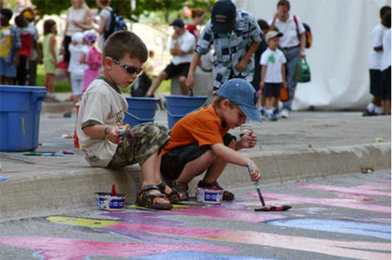
On placemaking, land, and the production of space
Offered by Karim-Yassin GOESSINGER
on Wednesday mornings from 10:00 am to 12:30 pm and evenings from 5:30 pm to 8:00 pm
Placemaking represents a comeback for community. The iterative actions and collaborations inherent in the making of places nourish communities and empower people.
The so called spatial turn in the social sciences continues to provide us with some of the most compelling theoretical insight into the use of land, the production of space and the making of place. Attempts to humanize the process of spatial planning and design have evolved with the re-emergence of the importance of place and post-colonial discourse. This course brings to light the potential inherent to engaging creative, collaborative and ecological practices within placemaking processes and reminds us of their importance in combatting the negative impacts of planetary urbanisation, anthropocentric climate change and social justice and cohesion.
continue reading
Offered by Karim-Yassin GOESSINGER
on Wednesday mornings from 10:00 am to 12:30 pm and evenings from 5:30 pm to 8:00 pm
Placemaking represents a comeback for community. The iterative actions and collaborations inherent in the making of places nourish communities and empower people.
The so called spatial turn in the social sciences continues to provide us with some of the most compelling theoretical insight into the use of land, the production of space and the making of place. Attempts to humanize the process of spatial planning and design have evolved with the re-emergence of the importance of place and post-colonial discourse. This course brings to light the potential inherent to engaging creative, collaborative and ecological practices within placemaking processes and reminds us of their importance in combatting the negative impacts of planetary urbanisation, anthropocentric climate change and social justice and cohesion.
continue reading
حول خلق المكان : اﻹنتاج اﻹجتماعي للمساحة
مقدم من كريم جوسنجر
أيام الأربعاء صباحاً من العاشرة حتى الثانية عشر و نصف
و مساءاً من الخامسة و النصف حتى الثامنة
يعبر خلق المكان عن عودة الجماعة اﻷهلية. كما أن اﻷفعال التكرارية والمشاركات متضمنة في خلق أماكن تحيي الجماعات اﻷهلية وتعاضد الناس.
يستمر التحول المسمى بالمكاني في العلوم اﻹجتماعية في تقديم بعض من الرؤي النظرية اﻷكثر جاذبية في استخدام العقار وخلق الفضاء والمكان. تطورت محاولات أنسنة عملية التخطيط والتصميم المكاني مع عودة إشراق أهمية المكان والخطاب ما بعد اﻹستعماري. يسلط هذا المساق الضوء على اﻹمكانية المتضمنة في ضم الممارسات اﻹبداعية والتعاونية والبيئية إلى عمليات خلق المكان وتذكرنا بأهميتها في مواجهة اﻵثار السلبية للتحضر الكوني والتغير المناخي والعدالة اﻹجتماعية والتجانس.
المزيد
مقدم من كريم جوسنجر
أيام الأربعاء صباحاً من العاشرة حتى الثانية عشر و نصف
و مساءاً من الخامسة و النصف حتى الثامنة
يعبر خلق المكان عن عودة الجماعة اﻷهلية. كما أن اﻷفعال التكرارية والمشاركات متضمنة في خلق أماكن تحيي الجماعات اﻷهلية وتعاضد الناس.
يستمر التحول المسمى بالمكاني في العلوم اﻹجتماعية في تقديم بعض من الرؤي النظرية اﻷكثر جاذبية في استخدام العقار وخلق الفضاء والمكان. تطورت محاولات أنسنة عملية التخطيط والتصميم المكاني مع عودة إشراق أهمية المكان والخطاب ما بعد اﻹستعماري. يسلط هذا المساق الضوء على اﻹمكانية المتضمنة في ضم الممارسات اﻹبداعية والتعاونية والبيئية إلى عمليات خلق المكان وتذكرنا بأهميتها في مواجهة اﻵثار السلبية للتحضر الكوني والتغير المناخي والعدالة اﻹجتماعية والتجانس.
المزيد
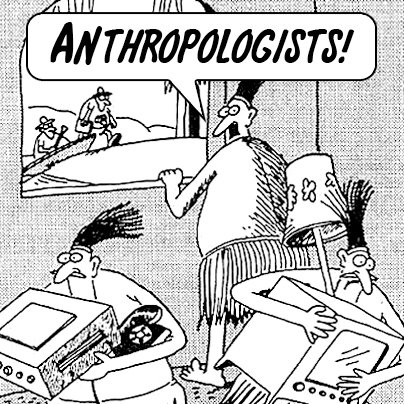
The Poetics of Ethnography
Offered by Doaa KADDAH
on Thursday mornings from 10:00 am to 12:30 pm and evenings from 5:30 pm to 8:00 pm
How, why and for whom exactly do we ‘research’ and write? Are we longing for connecting to what has been devoured by the responsibilities and hassles of our everyday? Or are we, in one way or the other, reproducing the very ‘stuff’ that we aim to disentangle from? Who has the epistemological authority to interpret our own experiences in the ‘field’ and why? Who sets the rules of writing creatively and to what extent should we take them seriously? How are we going to formulate the words to encompass the vivid experiences that we lived through? In this seminar, we explore together the politics of fieldwork and the poetics of anthropological writing.
continue reading
Offered by Doaa KADDAH
on Thursday mornings from 10:00 am to 12:30 pm and evenings from 5:30 pm to 8:00 pm
How, why and for whom exactly do we ‘research’ and write? Are we longing for connecting to what has been devoured by the responsibilities and hassles of our everyday? Or are we, in one way or the other, reproducing the very ‘stuff’ that we aim to disentangle from? Who has the epistemological authority to interpret our own experiences in the ‘field’ and why? Who sets the rules of writing creatively and to what extent should we take them seriously? How are we going to formulate the words to encompass the vivid experiences that we lived through? In this seminar, we explore together the politics of fieldwork and the poetics of anthropological writing.
continue reading
فن اﻹثنوغرافيا
مقدم من دعاء قداح
أيام الخميس صباحاً من العاشرة حتى الثانية عشر و نصف
و مساءاً من الخامسة و النصف حتى الثامنة
كيف بالتحديد نقوم بالبحث والكتابة؟ ولماذا؟ ولمن؟ هل نحُن لوصل بما تم التهامه من قبل مسؤليات حياتنا اليومية ومشاحنتها؟ أم أننا نحاول بشكل أو بآخر أن نعيد إنتاج ما كنا نهدف أن ننحل منه من البداية؟
من لديه السلطة المعرفية لتفسير خبراتنا في حقل البحث ولماذا؟ من يضع قوانين الكتابة الإبداعية ولأي مدى يجب علينا الإلتزام بتلك القوانين؟ كيف يمكننا أن نصوغ الكلمات لتشمل التجارب الحية
التي نعشها؟ نستكشف معًا في هذا المساق سياسات البحث الميداني وفن الكتابة الإنثروبولوجية
المزيد
مقدم من دعاء قداح
أيام الخميس صباحاً من العاشرة حتى الثانية عشر و نصف
و مساءاً من الخامسة و النصف حتى الثامنة
كيف بالتحديد نقوم بالبحث والكتابة؟ ولماذا؟ ولمن؟ هل نحُن لوصل بما تم التهامه من قبل مسؤليات حياتنا اليومية ومشاحنتها؟ أم أننا نحاول بشكل أو بآخر أن نعيد إنتاج ما كنا نهدف أن ننحل منه من البداية؟
من لديه السلطة المعرفية لتفسير خبراتنا في حقل البحث ولماذا؟ من يضع قوانين الكتابة الإبداعية ولأي مدى يجب علينا الإلتزام بتلك القوانين؟ كيف يمكننا أن نصوغ الكلمات لتشمل التجارب الحية
التي نعشها؟ نستكشف معًا في هذا المساق سياسات البحث الميداني وفن الكتابة الإنثروبولوجية
المزيد

Minorities and the City
Offered by Menatullah HENDAWI and Hend EL GHAZALY
on Tuesday mornings from 10:00 am to 12:30 pm and evenings from 5:30 pm and 8:00 pm
Spatial conditions reflect social, political, economic, and cultural norms in a city. This course intends to shed light on the concept of minorities and their role in city development, by looking at minorities from deeper perspectives: the marginalised, the disabled, the disadvantaged and the vulnerable.
This will be pursued by looking at and linking theories with reality through raising questions like: How do minorities inhabit and reflect their identity in the city? What is beyond spatially observed minorities? What is their role in creating their own spaces? How are they represented in the city? What are their attempts to be integrated and included, and what is the role of the state and other actors in this?
continue reading
Offered by Menatullah HENDAWI and Hend EL GHAZALY
on Tuesday mornings from 10:00 am to 12:30 pm and evenings from 5:30 pm and 8:00 pm
Spatial conditions reflect social, political, economic, and cultural norms in a city. This course intends to shed light on the concept of minorities and their role in city development, by looking at minorities from deeper perspectives: the marginalised, the disabled, the disadvantaged and the vulnerable.
This will be pursued by looking at and linking theories with reality through raising questions like: How do minorities inhabit and reflect their identity in the city? What is beyond spatially observed minorities? What is their role in creating their own spaces? How are they represented in the city? What are their attempts to be integrated and included, and what is the role of the state and other actors in this?
continue reading
الأقليات والمدينة
مقدم من منة الله هنداوي و هند الغزالي
أيام الثلاثاء صباحا من العاشرة إلى الثانية وعشر ظهراً و مساءاً من الخامسة والنصف إلى الثامنة
تعكس الظروف المكانية العادات اﻹقتصادية والسياسية واﻻقتصادية والثقافية في المدينة. يهدف هذا المساق إلى أن يلقي الضوء على مفهوم اﻷقليات ودورهم في تطور المدينة عن طريق النظر من منظور اعمق إلى اﻷقليات كالمهمشين واصحاب الحالات الخاصة والضعفاء وغيرهم.
سيتم هذا من خلال النظر في وربط النظريات بالواقع من خلال مناقشة أسئلة مثل: كيف تسكن الأقليات وتعكس هويتهم في المدينة؟ ما هو وراء الأقليات الملحوظة مكانيا؟ ما هو دورهم في خلق مساحات خاصة بهم؟ كيف يتم تمثيلهم في المدينة؟ ما هي محاولاتهم للاندماج ودور الدولة والفاعلين الآخرين في ذلك؟
المزيد
مقدم من منة الله هنداوي و هند الغزالي
أيام الثلاثاء صباحا من العاشرة إلى الثانية وعشر ظهراً و مساءاً من الخامسة والنصف إلى الثامنة
تعكس الظروف المكانية العادات اﻹقتصادية والسياسية واﻻقتصادية والثقافية في المدينة. يهدف هذا المساق إلى أن يلقي الضوء على مفهوم اﻷقليات ودورهم في تطور المدينة عن طريق النظر من منظور اعمق إلى اﻷقليات كالمهمشين واصحاب الحالات الخاصة والضعفاء وغيرهم.
سيتم هذا من خلال النظر في وربط النظريات بالواقع من خلال مناقشة أسئلة مثل: كيف تسكن الأقليات وتعكس هويتهم في المدينة؟ ما هو وراء الأقليات الملحوظة مكانيا؟ ما هو دورهم في خلق مساحات خاصة بهم؟ كيف يتم تمثيلهم في المدينة؟ ما هي محاولاتهم للاندماج ودور الدولة والفاعلين الآخرين في ذلك؟
المزيد

